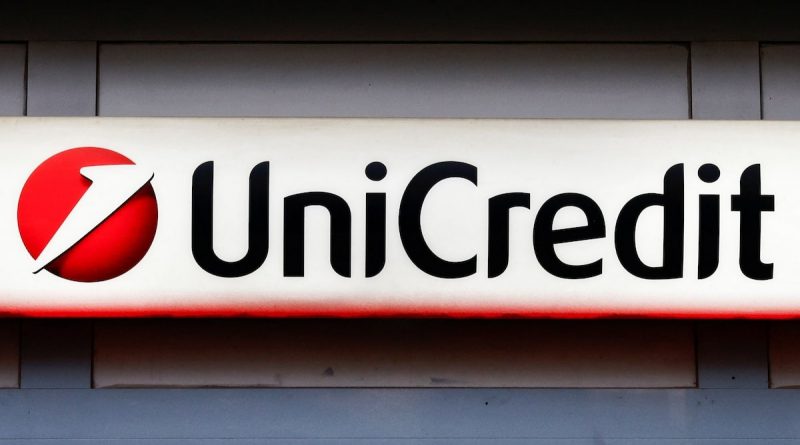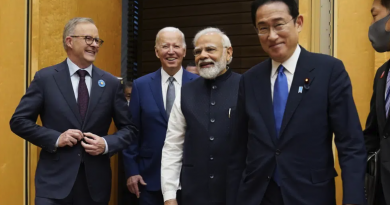Europe Urged to Unite Banking Power for Global Strength
EU’s Maria Luis Albuquerque urges Europe to drop barriers and back big bank mergers, warning that hesitation is weakening the continent’s global financial power.
In a strong and visionary message for Europe’s financial future, EU Commissioner for Financial Services Maria Luis Albuquerque expressed deep concern over the persistent obstacles blocking major European bank mergers, particularly referencing German resistance to UniCredit’s bid for Commerzbank.
Her remarks, made during an interview with RaiNews24 in Rome, reflected a broader frustration over Europe’s hesitation to build globally competitive financial institutions capable of matching the scale and influence of rivals in the United States and Asia.
Albuquerque’s words carry a weight that goes beyond the current UniCredit-Commerzbank issue. She called for a united European banking front—one that embraces strength, scale, and cooperation rather than protectionism and fragmentation.
“Not facilitating the emergence of European banks at the scale we need to compete with our real global competitors is always a shame,” she said, lamenting that political and regulatory barriers continue to hold back Europe’s financial evolution.
Her statement comes at a time when global banking powerhouses are consolidating rapidly, leaving European lenders struggling to gain similar international momentum.
Albuquerque’s comments serve as both a warning and a call to action: if Europe wants to stand firm on the world stage, it must let its banks grow, merge, and innovate without being weighed down by excessive national controls.
When asked about reports suggesting the European Commission was preparing to challenge Italy’s use of “golden power” legislation—which allows the government to scrutinize strategic mergers—Albuquerque declined to go into specifics but emphasized that European law must prevail.
She stressed that banking mergers should be evaluated by the European Central Bank and competition authorities, not by political interference. “If in any member state other entities are interfering, that could be in breach of European rules,” she said. “And we would have to act, because that is our obligation.”
Her words reflected both firmness and optimism—a belief that Europe can rise to the occasion if it embraces openness and unity.
The commissioner’s remarks suggest that the EU is ready to push back against measures that undermine integration and limit growth.
For her, the future of European banking depends on breaking down barriers, not building them up.
The potential UniCredit-Commerzbank merger represents more than a corporate transaction; it symbolizes Europe’s broader challenge of reconciling national interests with continental ambition.
While Germany’s hesitation is rooted in safeguarding its domestic financial ecosystem, the EU’s vision looks further ahead—to a landscape where European banks can compete with American giants like JPMorgan Chase or Asian titans like HSBC.
Albuquerque’s stance reflects a pragmatic yet hopeful approach. She envisions a Europe where financial institutions collaborate and expand beyond borders, where regulatory alignment replaces fragmentation, and where European citizens benefit from stronger, more resilient banks. Her tone was clear: Europe can no longer afford to act small in a world that rewards scale.
As global finance grows more interconnected and competitive, her message resonates with urgency. Europe, she implied, must move from a mindset of hesitation to one of ambition.
The commissioner’s remarks underscore the pressing need to modernize EU banking policies, streamline cross-border regulations, and encourage mergers that create true continental champions.
Her visit to Rome and her comments to the Italian broadcaster mark a pivotal moment in Europe’s financial dialogue—a reminder that cooperation, not caution, is the key to progress.
By advocating for a unified financial front, Albuquerque reinforced the idea that Europe’s economic future depends on collective strength, strategic vision, and the courage to reform outdated structures.
In essence, her message was not merely about one merger—it was about Europe’s place in the global financial order.
The commissioner’s passionate defense of integration and competition stands as a rallying cry for policymakers and bankers alike: the time has come for Europe to believe in its own power, to trust its institutions, and to build banks capable of leading the world.
Through her words, Maria Luis Albuquerque transformed a complex financial issue into a powerful statement of purpose—urging Europe to embrace growth, unity, and the courage to compete on equal terms with the global giants shaping the future of finance.


